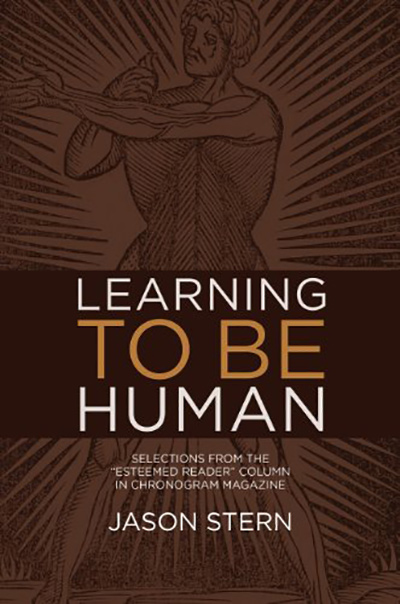“This text must be a mirror. It must reflect the reader back to herself, so that the reader acquires a vision. It requires a power greater than the text to allow the reader to see with clarity. It is the additional matter of awakening the heart. Ultimately, a search is sustained by strong feeling for the adventure of being in light of one’s inadequacy to venture forth.”
—from the Foreword
A compilation of Stern’s columns from Chronogram in which he explores the intriguing concept of regional culture in its full meaning.
Learning to be Human is a book about striving. The chapters are culled from a regular column in the Hudson Valley’s Chronogram magazine, over a thirteen year span. It is an inner account of a search for meaning in the light of the teachings of G. I. Gurdjieff, as well as Sufism, Buddhism, Taoism, and Judaism, in the context of the life of a seeker, lover, father, householder, athlete, publisher, and entrepreneur.
The essays are a record of insights and experiences gleaned in light of a fundamental admonition: Know Thyself. What makes the book unique is its consistent return to the teachings of G. I. Gurdjieff as a key to unlocking not only the meaning of the world’s great traditions, but also the experiences of the life of a man in the world, spanning the ages of 25 to 40 years old.
The style of writing varies from deeply personal, almost confessional, first-person narratives, to poetic observations, to pedagogic expositions of philosophical and religious ideas. There is a clear political point of view, but always tempered by an emphasis on self-knowledge and the reflection of the activities of people in the world in ourselves.
Jason Stern is the publisher and co-founder of Chronogram.
Jason Stern’s meditative but acute reflections on current issues and community events seem to echo the insights of Emerson and Thoreau, viewing the cosmos through the details of current life, looking with humour on the vagaries of our minds and customs. His centering in the ideas of Gurdjieff, the Armenian Greek who startled people a hundred years ago now by his cutting insight into human folly, gives Jason an edge that puts him in a special category. But here is no jargon or harsh judgment. Here is a human voice, sparkling with warmth and softened in bemusement, a voice-over to the movie of human life he sees just outside his window. You can dip in almost anywhere and find yourself smiling, no matter how serious the topic. Such a compassionate observer is surely a reminder of our own conscience and compassion.
—Anthony Blake


